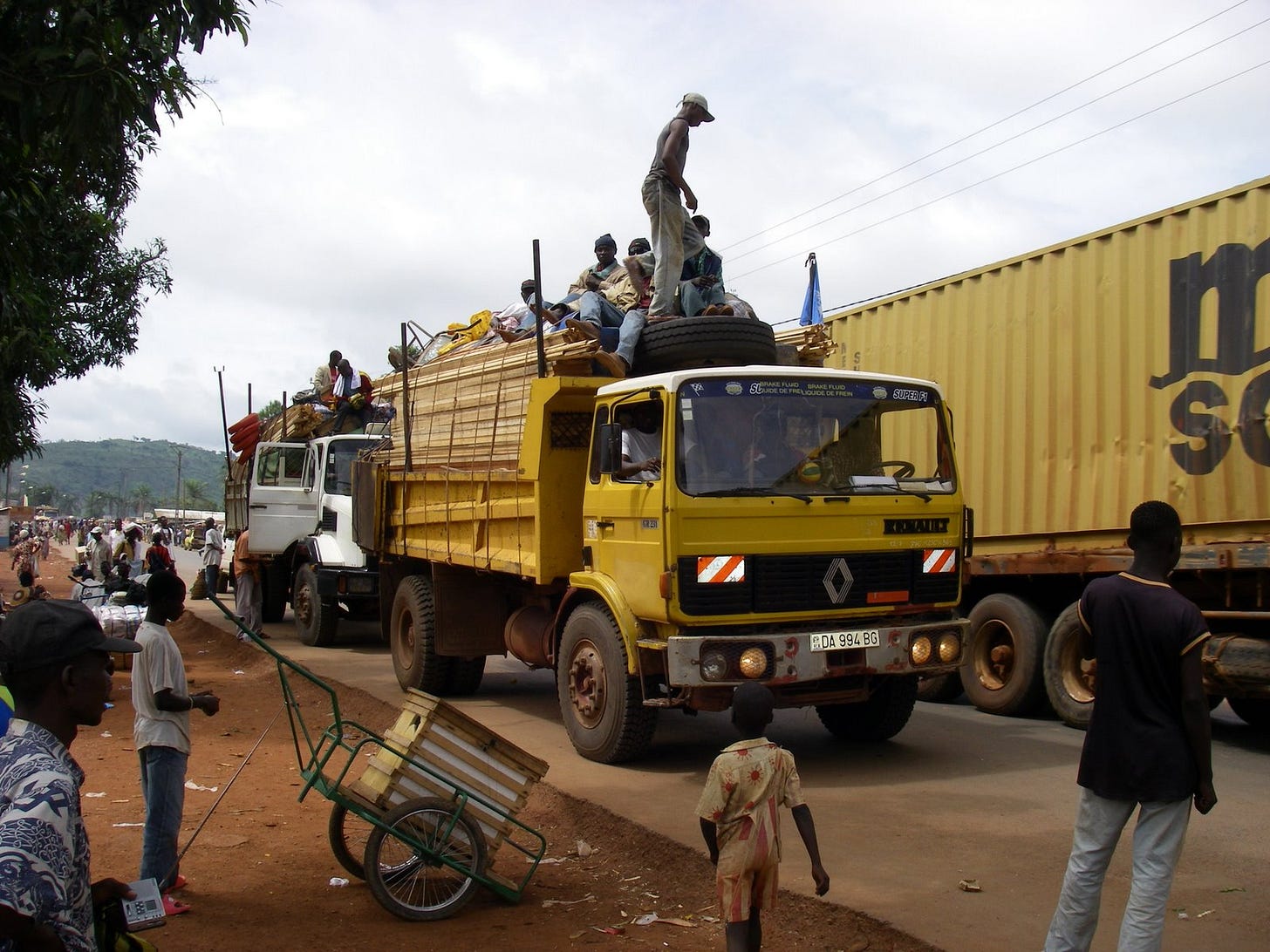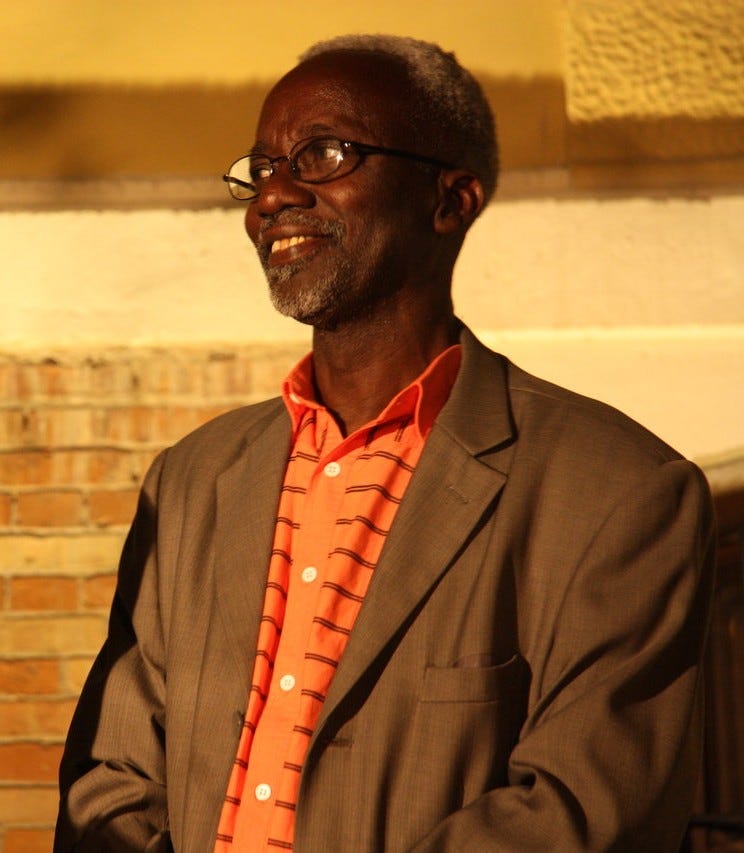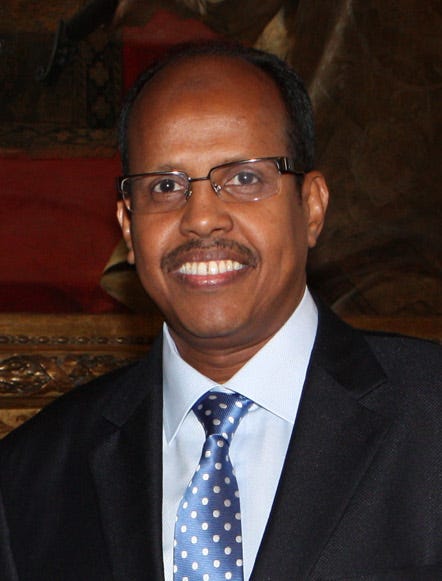Good Morning from Central African Republic!
Souleymane Cissé: The Light of African Cinema Fades
Malian film legend Souleymane Cissé, a pioneer of African storytelling on screen, has passed away at the age of 84. Though the cause of death remains undisclosed, tributes have been pouring in for the man whose films challenged, illuminated, and inspired audiences across the globe.
Cissé etched his name into cinematic history when his 1987 masterpiece, Yeelen (The Light), won the Jury Prize at Cannes, making him the first Black African filmmaker to receive the honor. His body of work—politically sharp, narratively rich, and unapologetically African—cemented his place as one of the continent’s greatest directors.
His films, often made under intense political and financial strain, spoke to the struggles and resilience of African societies. His 1975 debut feature, Den Muso (The Young Girl), tackled sexual violence and societal rejection but was banned in Mali, landing Cissé in jail for accepting French funding. It was behind bars that he wrote his next film, Baara (Work)—a searing critique of class and labor exploitation.
Cissé spent his last years advocating for African cinema’s financial and structural independence, urging young filmmakers to look beyond European funding and calling on Mali’s government to invest in cinema infrastructure.
In a fitting final act, just hours before his passing, he made a final plea to authorities: “It is not enough to make cinema, the works must also be visible. May the authorities help us with the construction of cinemas.”
Djibouti’s Foreign Minister Grabs the Wheel of the African Union
In a dramatic election, Mahmoud Ali Youssouf—the perpetual foreign minister of tiny Djibouti—emerged as the new head honcho of the African Union Commission. His victory on Saturday came after a marathon seven rounds of voting in Addis Ababa, outlasting Kenya’s former Prime Minister Raila Odinga and Madagascar’s ex-Foreign Minister Richard Randriamandrato.
Youssouf, who just turned 60, has been Djibouti’s foreign affairs chief for nearly two decades, making him the continent’s longest-serving minister in that department. Despite a roller-coaster start—he trailed in the first couple of rounds behind the ever-charismatic Raila—Youssouf eventually outmaneuvered all competitors until he stood alone with the required 33 votes in the final round. He now takes over from Moussa Faki Mahamat of Chad, who’s been at the helm for two terms.
Of course, stepping into this new gig comes with a bonus pack of crises: The Democratic Republic of Congo, Africa’s second-largest country, has been grappling with M23 rebels who recently marched closer to Bukavu in the east—this just after they seized Goma. Then there’s Sudan, where fighting between rival factions has unraveled into a broader humanitarian crisis.
Asked previously about his priorities if he got the top job, Youssouf gave a short to-do list: end wars, reform the AU itself, and hire staff based on skill (not nepotism or political strings).
Amid all this hustle, there was also a slight rotation in the AU’s figureheads. Angolan President João Lourenço took over the rotating AU chairmanship from Mauritanian President Mohamed Ould Cheikh Ghazouani, a shift overshadowed by the Commission election drama.
Trump’s Executive Orders: What Africa Should Be Watching

Donald Trump’s return to the White House has brought a flurry of executive orders (44 in his first hours, to be exact), setting the stage for a foreign policy that’s unapologetically “America First.” While these changes will send ripple effects across the globe, Africa has some serious homework to do.
According to Zeinab Usman from the Carnegie Endowment for International Peace organisation, here’s what’s worth paying attention to:
1. Foreign Aid? Not So Fast.
Trump has hit the pause button on U.S. foreign aid, calling for a 90-day review of all obligations and disbursements. That’s significant, considering the U.S. sent $14.9 billion to Africa in 2023 alone.
So what happens now?
Projects are grinding to a halt. Unless it’s emergency food aid or support for Egypt and Israel, U.S.-funded programs—particularly in health, agriculture, and education—are suddenly out of cash.
Expect an aid overhaul. The U.S. is shifting focus to security interests, faith-based organizations, and self-reliance programs.
Multilateral institutions could lose funding. Contributions to UN agencies like the WHO and climate initiatives are likely on the chopping block.
For Africa, this means one thing: diversification of funding sources is no longer a luxury—it’s a necessity.
2. Energy: No More Climate Handcuffs
Trump has declared an “Energy Emergency”, doubling down on oil, gas, and mining while pulling out of international climate commitments. The U.S. is prioritizing “energy security” over emissions reduction, which could be a double-edged sword for Africa.
The good: Countries rich in critical minerals (cobalt, lithium, rare earths) could negotiate deals with the U.S. as it seeks alternatives to China.
The bad: Multilateral climate funds, such as South Africa’s Just Energy Transition Partnership, may face setbacks.
The interesting: The U.S. may push the World Bank and IMF to loosen restrictions on financing hydrocarbons in Africa. Nations like Nigeria and Angola might see a windfall—if they play their cards right.
3. A Tax Deal That’s No Longer a Deal
The U.S. is officially out of the OECD’s Global Tax Deal, which was meant to curb corporate tax evasion. This move:
Weakens Africa’s fight against illicit financial flows. The continent already loses $90 billion annually to tax avoidance—more than it receives in foreign aid.
Puts U.S. investments in a gray zone. Countries that adhere to the tax deal might now see U.S. investors as a compliance risk.
Bottom line? African governments must get sharper on tax policy, or risk bleeding even more revenue.
4. Global Trade: America’s Rules, America’s Way
Trump is reshuffling U.S. trade agreements, demanding reciprocity. The African Growth and Opportunity Act (AGOA)—which gives duty-free access to U.S. markets—expires in 2025. Its renewal is now uncertain.
Africa should be asking:
Will AGOA be replaced with bilateral deals? (Think the Kenya FTA, which Trump started in his first term.)
Will African nations face new trade restrictions? If tariffs go up across the board, U.S.-Africa trade could take a hit.
5. WHO’s Funding Just Took a Hit
Trump has withdrawn the U.S. from the WHO—again. The U.S. contributes 15% of the WHO’s budget, meaning:
Health programs in Africa will feel the squeeze. Many rely on WHO funding, particularly in disease control and maternal health.
China could step in. Will Beijing replace U.S. funding to expand its influence? Alternatively, will private donors like the Gates Foundation fill the gap?
Either way, Africa’s global health strategy must adapt quickly.
6. China-U.S. Tensions = African Dilemmas
Trump is ramping up economic warfare against China. This could mean:
Reduced Chinese demand for African exports. If China’s economy takes a hit, so will Africa’s raw material sales.
Secondary sanctions. African nations may be forced to “choose sides” between Beijing and Washington.
So, What’s the Play?
African leaders need to think fast and act smart:
✅ Double down on regional trade. The African Continental Free Trade Area (AfCFTA) is more important than ever.
✅ Leverage U.S. interest in critical minerals. Countries with resources like cobalt, lithium, and graphite can strike favorable deals—before someone else does.
✅ Be tax-savvy. Losing both foreign aid and tax revenue could be devastating. Governments need airtight policies on corporate taxation.
✅ Prepare for an AGOA shake-up. If the U.S. demands reciprocity, Africa must negotiate from a position of strength.
Ultimately, Trump’s executive orders are just the opening act. Africa needs to be strategic, proactive, and ready for what comes next.
Food for Thought
“Never give up what you have seen for what you have heard.”
— Kenyan Proverb






